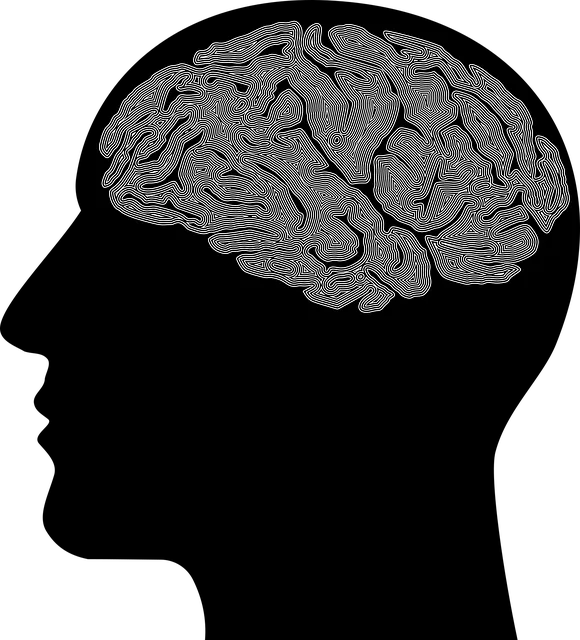The Boulder Kaiser Permanente mental health center tackles the significant challenge of mental illness stigma through comprehensive programs. By educating communities, facilitating support groups, and promoting awareness campaigns, mindfulness, and stress reduction techniques, the center creates an empathetic environment. Their initiatives, such as Crisis Intervention Guidance, Empathy Building Strategies, and Mental Wellness Journaling Exercises, empower individuals to assist others while normalizing mental health discussions. Through community engagement, these programs reduce isolation, challenge societal perceptions, and ultimately improve mental wellness for all, making a tangible impact on help-seeking behaviors and attitudes across diverse communities.
At Boulder Kaiser Permanente mental health center, we’re on a mission to dispel the stigma surrounding mental illness. This article delves into the profound impact of stigma and explores effective strategies for its reduction. From understanding the barriers faced by those seeking help at our facility to examining successful programs and community engagement initiatives, we provide insights into fostering a more inclusive environment. Through measuring the effectiveness of these efforts, we aim to revolutionize mental health support in our community.
- Understanding Stigma: Its Impact on Mental Health Seekers at Boulder Kaiser Permanente
- Strategies for Effective Stigma Reduction: A Look into Programs and Initiatives
- Community Engagement: Empowering Change Through Education and Support Groups
- Measuring Success: Evaluating the Effectiveness of Stigma Reduction Efforts at the Center
Understanding Stigma: Its Impact on Mental Health Seekers at Boulder Kaiser Permanente

At Boulder Kaiser Permanente mental health center, the impact of stigma on individuals seeking support for their mental well-being is a critical issue. Stigma often manifests as negative perceptions and stereotypes about mental illness, leading to shame, fear, and avoidance of help-seeking behaviors. This can significantly deter people from accessing essential care and treatment. Patients at the center may face challenges in openly discussing their struggles due to societal labels and expectations, hindering their progress towards recovery.
Understanding stigma is a crucial step toward its reduction. Through initiatives like education programs, support groups, and awareness campaigns, Boulder Kaiser Permanente aims to foster an environment that promotes empathy and understanding. Encouraging practices such as mindfulness meditation and self-awareness exercises can help individuals cultivate compassion for themselves and others, challenging preconceived notions about mental health. Additionally, stress reduction methods play a vital role in stigma reduction by demonstrating the connection between mental and physical well-being, showing that seeking help is a proactive step towards a healthier, happier life.
Strategies for Effective Stigma Reduction: A Look into Programs and Initiatives

Stigma reduction efforts play a pivotal role in fostering understanding and support for mental health issues. Programs like those offered at the Boulder Kaiser Permanente mental health center exemplify innovative approaches to tackling this challenge. One such strategy is Crisis Intervention Guidance, which equips individuals with the skills to assist others during mental health crises. This not only empowers bystanders but also ensures prompt access to help.
Additionally, initiatives focused on Empathy Building Strategies have proven effective in breaking down barriers. By encouraging open conversations and personal reflections through activities like Mental Wellness Journaling Exercises, communities can foster an environment where mental illness is normalized. These exercises guide individuals to express their thoughts and feelings, enhancing self-awareness and empathy towards others’ experiences. Such programs collectively contribute to a more inclusive society that prioritizes mental wellness for all.
Community Engagement: Empowering Change Through Education and Support Groups

In the fight against mental illness stigma, community engagement plays a pivotal role, and Boulder Kaiser Permanente mental health center stands as a beacon of hope and education. By hosting regular support groups and organizing Stress Management Workshops Organization, this center fosters an environment where individuals can openly discuss their experiences, break down barriers, and reduce the isolation often associated with mental health struggles. These initiatives not only provide a safe space for learning but also empower community members to take charge of their emotional well-being.
The center’s approach extends beyond individual therapy, aiming to create a collective consciousness around anxiety relief and emotional regulation. Through these group efforts, participants gain valuable tools to manage their mental health while building a network of peers who understand their journey. Such community-driven strategies are instrumental in challenging societal perceptions, promoting understanding, and ultimately reducing the stigma surrounding mental illness.
Measuring Success: Evaluating the Effectiveness of Stigma Reduction Efforts at the Center

Measuring success in stigma reduction efforts at the Boulder Kaiser Permanente mental health center involves a multifaceted approach that goes beyond simple surveys and feedback. It’s not just about quantifying the number of people who feel more comfortable discussing mental wellness; it’s about tracking tangible improvements in community attitudes and behaviors towards individuals facing mental health challenges. This includes evaluating changes in help-seeking patterns, with an emphasis on diversifying access to care for underrepresented groups, reflecting the center’s commitment to cultural sensitivity in mental healthcare practice.
The effectiveness of these efforts can be assessed through various metrics, such as increased participation in mental wellness programs, improved crisis intervention guidance accessible through community partnerships, and reduced instances of discrimination reported by clients. By integrating these measurements into their evaluation strategy, the Boulder Kaiser Permanente mental health center ensures that their stigma reduction initiatives are not only making a difference but also contributing to lasting positive shifts in perceptions around mental health across diverse communities.
Efforts to reduce stigma surrounding mental illness, as exemplified by programs at the Boulder Kaiser Permanente mental health center, hold immense potential for fostering a more inclusive and supportive society. By implementing targeted strategies, such as education campaigns, support groups, and community engagement, we can create an environment where individuals feel empowered to seek help without fear of judgment. Continuous evaluation and adaptation of these efforts are crucial to ensure their effectiveness, ultimately leading to improved mental health outcomes for all.






